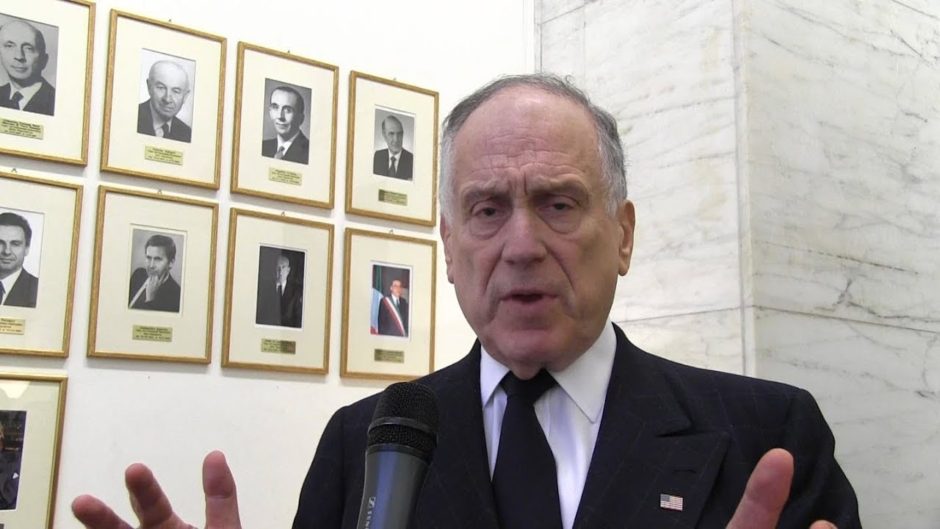When people like Ronald Lauder publicly worry about the political and social direction in which Israel is heading, it is high time for Israeli leaders, especially Prime Minister Benjamin Netanyahu, to pause and take stock.

On March 18, The New York Times published a thoughtful op-ed piece by Lauder, the president of the World Jewish Congress, about two “grave threats” that could “endanger (Israel’s) very existence” in the not-too-distant future.
Lauder warned of dire consequences should the two-state solution fall by the wayside and should the Israeli government capitulate to “religious extremists” and thereby alienate vast swaths of Jews in the Diaspora.
To be sure, Lauder’s warnings are not exactly new. They’ve been expressed by left-of-center critics for decades now. But when such criticism is voiced by a man like Lauder, a respected figure in the Jewish Establishment, something is afoot and a sea change may be in the offing.

Jewish community leaders like Lauder tend to follow the lead of the Israeli government in virtually all respects. As he writes, he’s “conservative and a Republican,” and has supported Netanyahu’s right-wing Likud Party since the 1980s. But in a startling volte-face which may well influence American Jews of his class, Lauder has become a critic rather than a cheerleader.
Lauder’s concerns make eminent sense.
As he points out in a sound demographic argument, the higher Arab birthrate is a factor that Israel must regard with the utmost seriousness. Of the 13 million Jews and Arabs living between the Mediterranean Sea and the Jordan River, almost half are Palestinians. At this rate, Muslim and Christian Palestinians will outnumber Jews within a few decades.
“If current trends continue, Israel will face a stark choice,” he observes. “Grant Palestinians full rights and cease being a Jewish state, or rescind their rights and cease being a democracy.”
There are Jews in Israel who would have no trouble whatsoever watching it degenerate into a Jewish apartheid state. Lauder parts company with them. “To avoid these unacceptable outcomes, the only path forward is the two-state solution,” he says.
Netanyahu and company claim that Israel has no negotiating partner in Mahmoud Abbas, the president of the Palestinian Authority. They are wrong. Frustrated at having to deal with a intransigent Israeli government that prefers land to peace and conflict management to conflict resolution, Abbas has put his foot in his mouth once too often. But at the end of the day, the mainstream Palestinian leadership appears ready for talks to end the interminable conflict with Israel. Without naming names, Lauder says that “senior Palestinian leaders” have personally told him they are prepared to begin direct talks with Israel immediately.
But Netanyahu, his claims about the absence of a suitable Palestinian partner notwithstanding, is far more interested in confronting Iran and its allies than in resolving the century-long conflict with the Palestinians. True, Iran is a dangerous enemy that must be watched and contained. But if Israel fails to settle its conflict with the Palestinians, Iran will exploit Palestinian grievances for its own ends, and Israel will pay dearly for its negligence.
In that vein, Lauder warns Israel that proposals by certain Israeli politicians to annex two-thirds of the West Bank, and that plans by the Likud to step up the pace of Jewish settlement building in Judea and Samaria on territory likely to be included in a Palestinian state, will be to Israel’s disadvantage. As he puts it, “Such blinkered Israeli policies are creating an irreversible one-state reality.”
In a single binational state — the choice of the far left, Iran, Hezbollah, many Arab regimes and the majority of the world’s Muslims — the Zionist dream of Jewish nationhood would wither and die within several generations. Due to demography, a binational state would eventually become an Arab Muslim state.
Lauder’s point about the disproportionate influence wielded by the ultra-Orthodox lobby in Israel is also well taken.

Although haredim compose less than 15 percent of Israel’s Jewish population, the political power they possesses, and use indiscriminately all too often, is shameful. Haredi control over issues ranging from marriage and organized prayer at the Western Wall in Jerusalem, is galling and outrageous.
“By submitting to the pressures exerted by a minority in Israel, the Jewish state is alienating a large segment of the Jewish people,” says Lauder. “The crisis is especially pronounced among the younger generation, which is predominantly secular. An increasing number of Jewish millennials — particularly in the United States — are distancing themselves from Israel because its policies contradict their values.”
Lauder, rightly so, contends that the spread of “state-enforced religiosity” is turning a modern, liberal country into “a semi-theocratic one.”
He adds, correctly, that most Jews in the Diaspora oppose the exclusion of women in certain religious practices, are fed up with strict conversion laws foisted upon the nation by the rabbinate and the religious parties, and rail against the ban of egalitarian prayer at the Western Wall. “They are bewildered by the impression that Israel is abandoning the humanistic vision of Theodor Herzl and taking on a character that does not suit its own core values or the spirit of the 21st century,” he goes on to say.

These are compelling points that the current Israeli government should consider.
If Israel opts for the status quo, as Lauder suggests, it will ultimately destroy itself.
